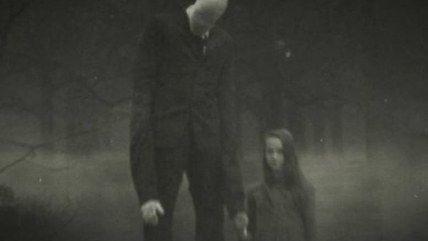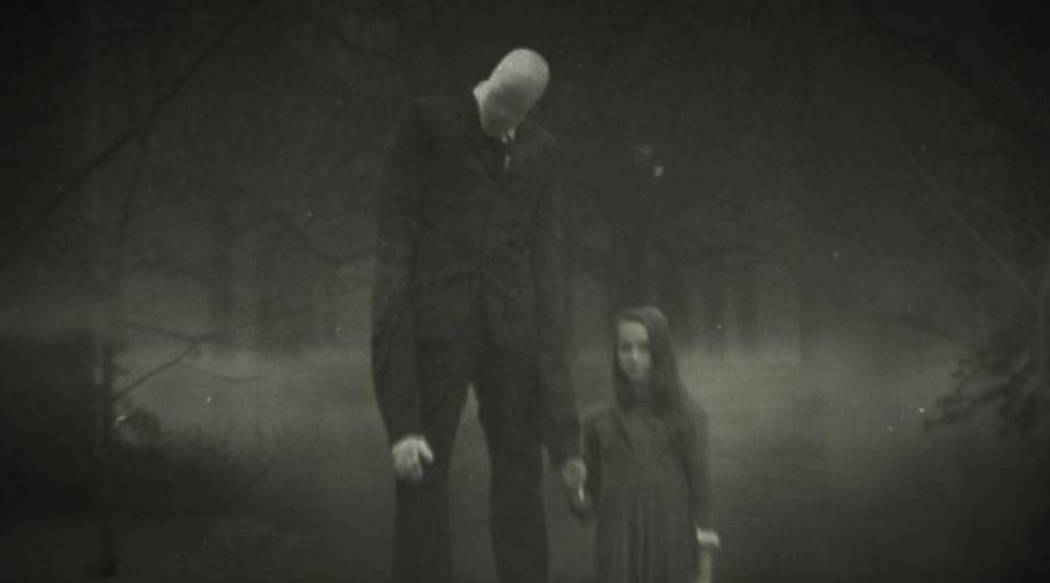Slenderman Documentary Unpacks Disturbing Teen Murder Attempt
Also, Riverdale gives Archie the gritty reboot nobody asked for.


Beware the Slenderman. HBO. Monday, January 23, 10 p.m.
Riverdale. The CW. Thursday, January 26, 9 p.m.
Kids these days! Remember the good old days when the worst trouble a mischievous child could get into was maybe joining a killer sex cult or blowing herself up in a Greenwich Village bomb factory? Well, television this week is full of evidence that Dennis the Menace has left the building, probably armed with a hatchet and a pocket full of strap-ons.
Actually, HBO's documentary Beware the Slenderman doesn't deserve such a flippant introduction. It's a serious—and seriously disturbing—piece of work about a pair of 12-year-old Wisconsin girls who, inspired by a creepy internet meme, lured a friend into the woods after a birthday party and stabbed her 19 times. That she survived was no fault of theirs.
The news of that 2014 attack on 12-year-old Payton Leutner by her supposed friends Morgan Geyser and Anissa Weier was, for most American grown-ups, the first word they'd heard of Slenderman, a lanky, faceless character who for the past five years had been haunting Internet chatboards and campfire-story sites.
In the beginning, Slenderman was nothing more than a shadowy and curiously disquieting image, digitally inserted into the periphery of family snapshots, usually eyeing or surrounded by children. But as he grew into a fad, inspiring fan fiction, homemade video games and a slew of "found-footage" videos modeled after The Blair Witch Project, the Slenderman myth acquired its own canon.
He was said to abduct and murder little children in ominously unspecified ways. The victims were often unloved or neglected kids, giving the killings a somehow even more chilling penumbra of mercy. Slenderman was able to multiply his damage many times over by acquiring proxies, cult members to do his work. And practically anybody might be swept up in his machinations, as victim, proxy or both. "The moment you know about him, he knows about you," explains one Slenderman expert interviewed in Beware.
Like millions of other kids, Morgan Geyser and Anissa Weier became fascinated by all things Slenderman. But unlike all the rest, they had trouble comprehending that he was imaginary. Perhaps social isolation was part of it; neither girl had many friends. (Though that begs the question, why turn on one of their few schoolmates who was a pal.)
In any event, they plotted to qualify as proxies by murdering Peyton and fleeing to Slenderman's hidden kingdom in a nearby national park. In harrowingly matter-of-fact confessions to police later, they described how they first tried to convince their victim to go to sleep to avoid unnecessary confusion and noise. ("I don't like screaming," Anissa primly declared to the cops. "That's one thing I can't handle.") When that didn't work, they banged her head against the wall of a park restroom in an attempt to knock her unconscious. Finally they jumped her from behind ("like lionesses chasing down a zebra," bragged Anissa) and Morgan stabbed her 19 times. "I trusted you," murmured Peyton as they dragged her into the bushes to die. Which, miraculously, she didn't.
Despite its title, Beware the Slenderman is not a call to moral panic. Writer-director Irene Taylor Brodsky, a CBS News producer before she turned to documentaries a decade ago, steers clear of both tabloid shrieking and babble. Neither the internet nor horror culture is demonized as an assassin of juvenile morality.
Morgan's mother, noting that at the same age she was a big fan of Stephen King's It, a novel in which a group of children is terrorized by a killer clown, says she was aware of her daughter's fascination with Slenderman but thought nothing of it: "We never thought for a moment that she could believe that it's real."
And though there's understandably a good bit of blue-sky psychological theorizing about what could possibly have turned a couple of cossetted suburban 12-year-olds homicidal, Brodsky always steers it back to basics. As one doctor notes, talk of childhood schizophrenia and adolescent delusions is fine. "But if your delusion starts telling you to kill people and you're not capable of saying no," he points out, "there's a problem."
A problem, it should be added, that extends back well before the internet or Stephen King. Whether they're unbalanced, just plain evil, or both, sociopathic kids have been committing incomprehensible murders at least since the time of Leopold and Loeb. Sadly, it's common enough that when British crime novelist Anne Perry was revealed to be writing from experience—she had, at the age of 15, helped a schoolmate beat her mother to death—Perry's reaction was that the whole thing was a bit of pish-posh. "I really didn't think it would surface again so long afterward," she complained to a reporter. "And it if did, it would be, you know, so what?"
Considerably more shocking to you may be that not only does the comic book Archie still exist, they're making it into a TV show. (Okay, another TV show.) In an act of reimagination that makes Slenderman fantasies seem almost normal, Riverdale turns Archie, Jughead and the gang into a bunch of killers, sluts, and sexual predators. And no, it's not an improvement.
Amiable Archie (New Zealand TV actor KJ Apa) is now a tortured artist, scribbling turgid song lyrics around the clock. Jughead (Cole Sprouse, whose career apparently peaked at age 8 when he was Ross' son Ben on Friends) is a gay social butterfly whose main object in life is servicing the deeply closeted jock Moose (hunky newcomer Cody Kearsley). Veronica (another newcomer, Camila Mendes) is a bit bitchier ("I'm Breakfast at Tiffany's, but this place is strictly In Cold Blood") than she used to be, and Betty (Lili Reinhart, Surviving Jack) a bit whinier. In the pilot episode, they make out not with Archie but one another, an act that would have caused millions of preadolescent body parts of various types to explode back in the comic book's heyday in the 1960s, but seems curiously passe in an age when everybody from Ariana Grande to Madonna uses lesbian kisses as a marketing device.
Perhaps the only readily recognizable member of the old crowd is Reggie Mantle (Ross Butler, Teen Wolf), Archie's rival in all things, especially all things female, though he's learned some new words. Welcoming Archie back to school after the summer, he inquires snidely: "Did you tap some cougar ass this summer?" This turns out not be a random wisecrack, but a reference to the long-suffering teacher Miss Grundy (Eve Parker, Rush), who has lost about 30 years off her age and added about three cup sizes to her washboard chest. And she did indeed liven up summer school by Letourneauing Archie in her VW bug.
If any of this sounds campy or entertaining, I'm afraid I've failed you. The acting is overcooked, the writing homicide-inducingly arch; and making the narrative dirtier, I am sad to report, is not the same thing as making it more sophisticated. Funky Winkerbean, anybody?


Show Comments (78)